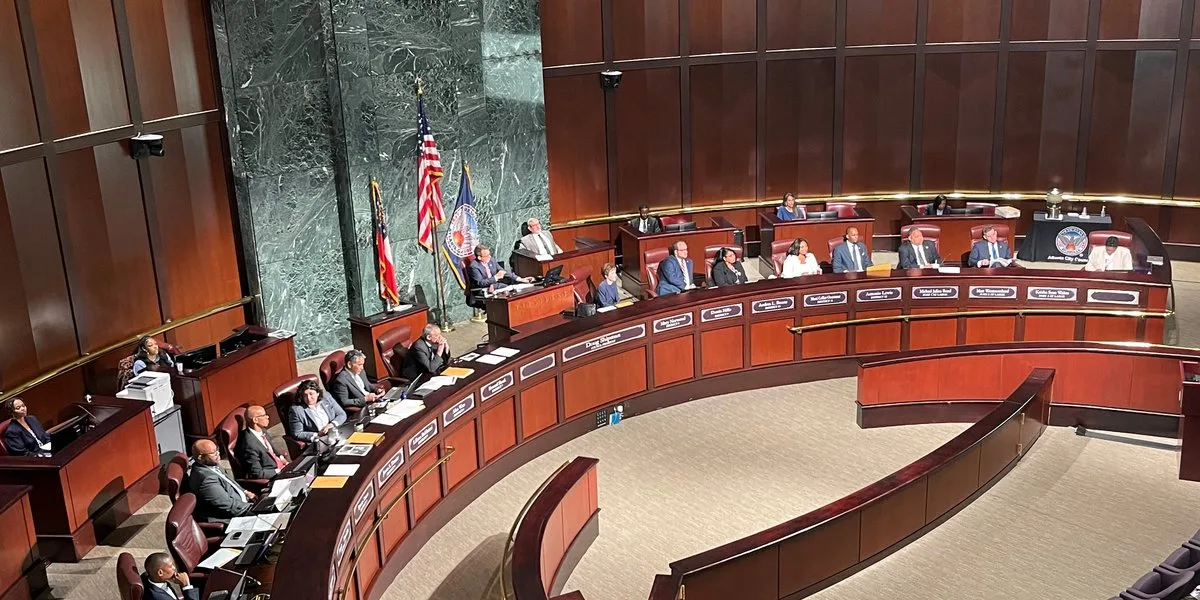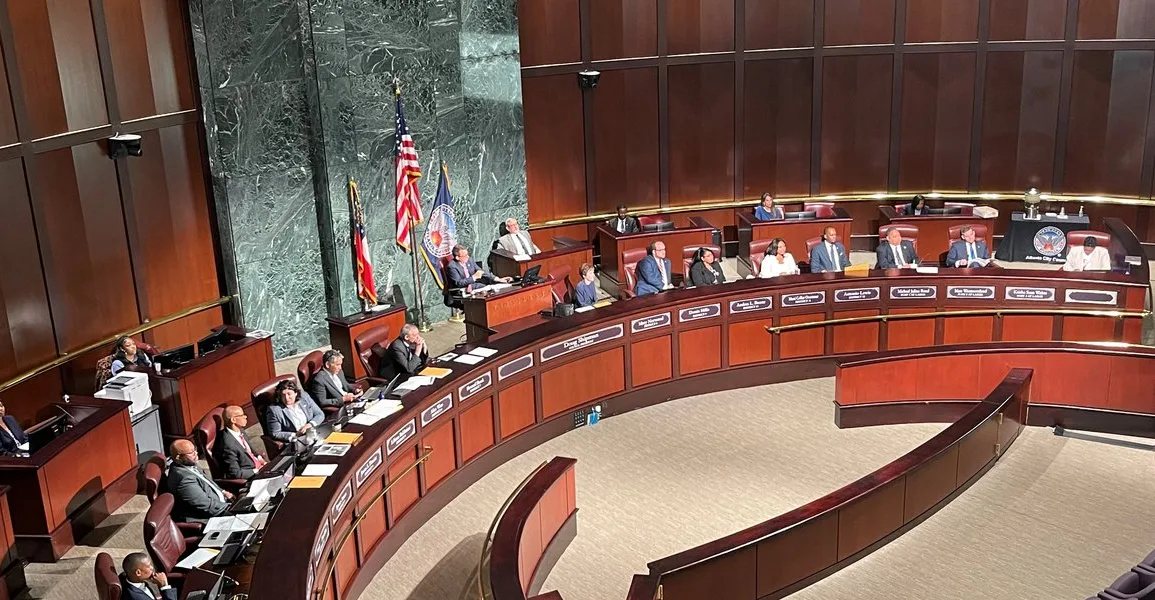
ATLANTA, Ga. (Atlanta News First) – Atlanta city councilmembers looked to take the first step towards closing generational gaps for Black residents on Monday. An agenda item sought to establish a task force to explore reparations.
While council members were clear that wouldn’t mean direct monetary payments, many were still hopeful that an exploratory look at years of inequity would lead to some change.
“The possibilities are limitless,” said council member Michael Julian Bond, who was behind the effort. “Because we’re creatures of the state, we’re limited in our power and authority. But there have been wrongs that have been committed and are well documented.”
Reparations were a guarantee for freed slaves after the Civil War as part of the Reconstruction era, but after the assassination of President Abraham Lincoln, the concept fell apart under his successor, President Andrew Johnson.
“And so for hundreds of years, Black people have been looking for that proverbial 40 acres and a mule and certainly, we did not receive it,” said Dr. Cynthia Spence, a professor and reparations expert with Spelman College. “It’s a complicated process, but certainly I think that it is a necessary process for all of us to engage in.”
Spence notes that several municipalities and counties around the U.S. have implemented successful reparations programs. Indeed, a task force in Fulton County is getting close to making their own recommendations and a program in Evanston, Illinois provided Black residents with better access to housing.
“This isn’t a new idea, it can happen, it’s been done before and it was actually a promise that was made that was not delivered upon,” said Spence. “It’s very complex, but the complexity should not prevent us from actually moving forward because we can all agree that harm was done.”
Spence also pointed to reparations paid to Jewish families after the Holocaust and to Japanese families who were placed in U.S. internment camps during World War II.
“There are, in fact, models not only within the U.S. but also globally where reparations have in fact occurred to remedy the wrongs that have been acted against certain marginalized populations,” said Spence. “So the government can’t say, well we don’t know how to do this, because it has been done.”
In lieu of direct monetary payments, the task force would likely put forth programs that would close gaps in historically unequal parts of society.
“Those outcomes have included things like reducing property taxes, providing monetary payments to Black individuals – African Americans in communities – to help with housing, there have been discussions about educational access,” said Spence. “Universities have been involved in this reparations work.”
“They may come back and say hey, maybe we’ll give folks some down payment assistance, maybe we’ll have some type of incentive program for them for small business or something of that nature,” said Bond. “So this will be the job of this committee, to make those recommendations and bring them back to the City of Atlanta.”
Copyright 2023 WANF. All rights reserved.


